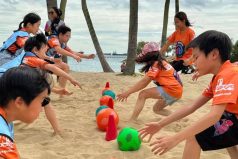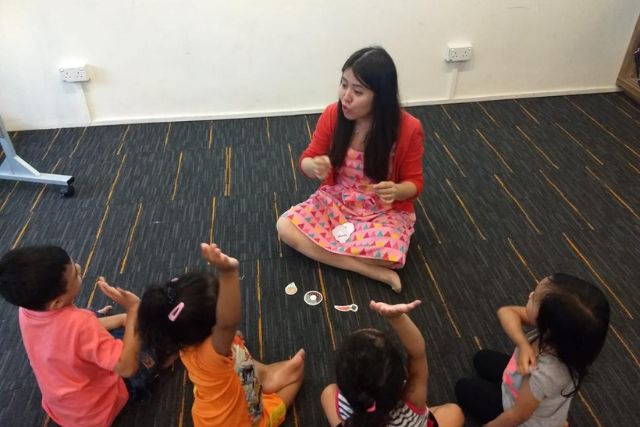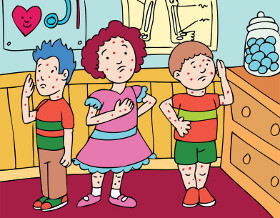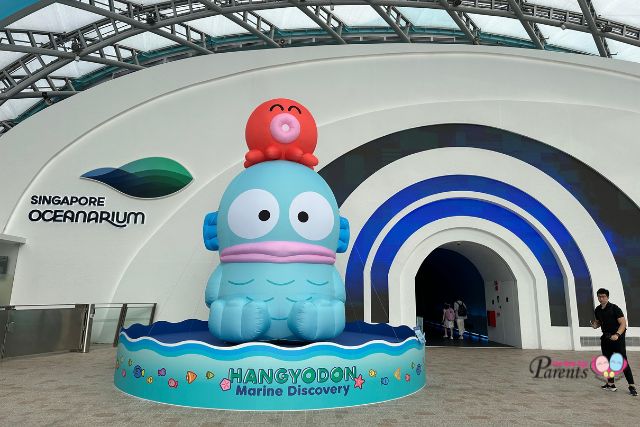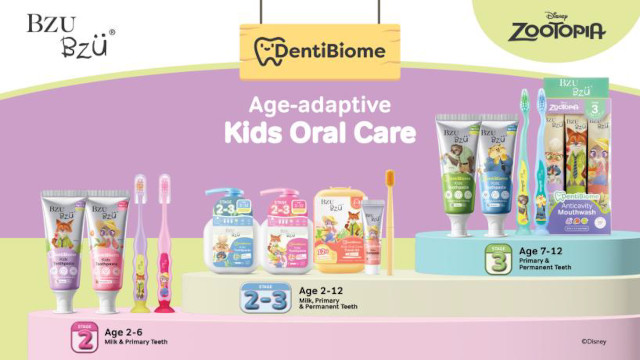In a general paediatric clinic in the Singapore heartlands, besides providing routine vaccinations, paediatricians care for a whole range of childhood illnesses. It may range from minor ailments to serious diseases requiring hospitalisation. Some of the more common conditions are discussed here.
A is for…
Allergic rhinitis
When there is an overreaction of the immune system to particles in the air, producing clear mucus, nasal congestion, sneezing, itch and eye tearing; allergic rhinitis is suspected. A cough may also develop when mucus drips from behind the nose down to the throat. A family history of a sensitive nose is commonly present. Common triggers include house dust mites, mould, animal fur and cigarette smoke.
Short-term relief with antihistamines, topical saline or decongestants may be used. Long-term control of symptoms may include allergy avoidance, oral montelukast, topical corticosteroids or sublingual immunotherapy.
Asthma
Asthma is the swelling and narrowing of the airways from chronic inflammation that results in airway sensitivity to several triggers. Common triggers are exposure to house dust mites or animal fur; viral infections, exercise and cigarette smoke. Children with asthma may develop wheezing, breathlessness, chest tightness and chronic cough. In severe attacks, asthma can be fatal.
There is no known cure for asthma, so treatment is targeted at reducing symptoms of asthma to enable the child to have a normal, active life. Acute attacks are treated with salbutamol, usually via an inhaler and spacer, or a nebuliser. Equally important, long-term control is achieved with either inhaled corticosteroids or oral montelukast. The medications for long-term control need to be used regularly for a period of time and then reviewed – doses should be adjusted according to the severity of symptoms.
B is for…
Bronchiolitis
Bronchiolitis is a viral infection of the air passages to the lungs. It affects children below the age of 2 years, with the peak at around 6 months. Symptoms include fever, cough, wheezing or noisy breathing, breathlessness and lethargy. Treatment is supportive as most medications do not have significant effects. Encouraging plenty of fluids and getting rest is enough in most cases. Severe cases, however, may require hospital admission for oxygen and/or an intravenous drip.
C is for…
Chickenpox
This is also a very contagious viral disease that causes fever and itchy red blisters all over the body. The illness lasts around 2 weeks and recovers spontaneously. Chickenpox vaccination can prevent this disease, but this is not part of the routine vaccination schedule. Most children will have mild disease and do not need specific treatment other than anti-itch medications. However, in certain cases, the antiviral acyclovir may be used to lessen the severity of the disease, provided it is used within 24 hours of the rash onset.
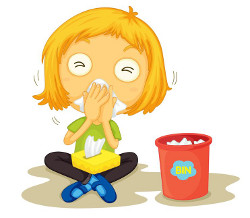 Cold (Upper respiratory tract infection)
Cold (Upper respiratory tract infection)
This is the most common reason for a child’s visit to the clinic. Colds are caused by a viral infection and spread very easily. The symptoms are runny nose, cough, sore throat and fever. As this condition usually lasts a week and improves on its own, medications are not necessary. Medications may be used to control fever or for relief of severe symptoms.
Colic
Defined as uncontrollable crying in a healthy baby for more than three hours in a row on three or more days a week for three weeks, colic can be a handful for baby and parents. It starts at 2-3 weeks of life and can persist until 3-4 months of age. Parents of these babies should avoid overfeeding and feeding juices. Breast-fed mothers can avoid milk and dairy products; formula-fed babies can switch to a hypoallergenic formula. Swaddling, walking the baby with his legs drawn up, white noise and physical stimulation can also be helpful. Probiotics may be beneficial, but other colic medications should only be given after consulting a doctor. Overall, it is an episodic and self-limiting condition.
Conjunctivitis
This is the inflammation of the membrane which covers the eyeball. Your child may have a viral /bacterial infection or be allergic to something they have come into contact with. Your child’s eyes will feel red and sore and they will be itchy. Bright lights may be uncomfortable, and after sleeping the eye may be sticky and difficult to open. You should find out what is triggering the reaction – if it is an allergy, the source needs to be found. Consult your doctor.
Constipation
Constipation is characterised by hard, dry stools. Causes include withholding, a change in diet, and/or an inadequate intake of fluid or fibre. Children with constipation need to increase their water and fibre (fruits, vegetables and cereals) intake, together with a regular toilet routine. Laxatives are used for more severe cases.
E is for…
Eczema
Eczema is a genetic defect of the skin structure leading to chronic inflammation, causing dry, itchy skin commonly over the neck, arms and legs. There is usually a family history of eczema and is associated with asthma and allergic rhinitis. Most children outgrow this condition, but some may have to deal with it for several years.
Babies with eczema should be exclusively breastfed until the age of 6 months. Affected skin should be moisturised at least twice a day. Harsh soaps should be avoided. Corticosteroid creams may be required for active eczema. The treatment target is to prevent skin infection and improve the quality of living.
D is for…
Diaper rash
This is used to describe a red rash over a baby’s diaper area. Common causes include direct irritation from urine and stools, fungal (candida) infection. Treatment would depend on the cause and may include removing diapers for a few hours a day, anti-inflammatory or anti-fungal creams. Diaper rash can be prevented by keeping the diaper area dry, regular diaper change, limiting the use of harsh soaps in the diaper region and the use of barrier creams (those containing zinc oxide).
By being aware of the common illnesses seen in children, parents can better monitor and understand their children. However, this article should not take the place of a professional medical consult if parents suspect that their child is unwell.
Stay tuned for part II!
By Dr Eugene Han, Paediatrician, SBCC Baby & Child Clinic.
This article was first published in The New Age Parents e-magazine.
Like what you see here? Get parenting tips and stories straight to your inbox! Join our mailing list here.
Want to be heard and seen by over 100,000 parents in Singapore? We can help! Leave your contact here and we’ll be in touch.












